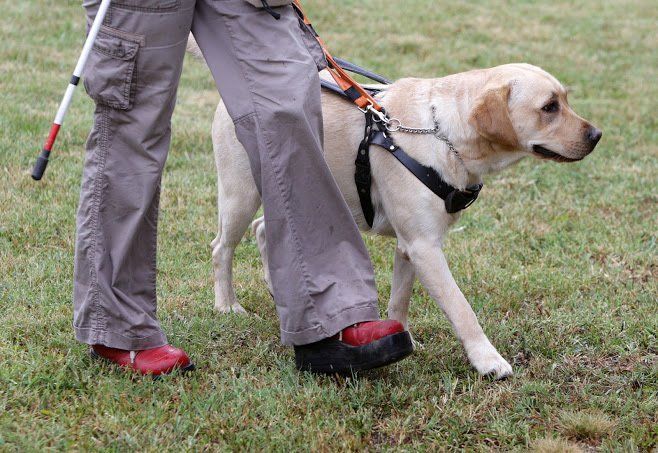How Social Media Use Affects Your Long-Term Disability Claim
- By Admin
- •
- 02 Aug, 2019
- •

An unfortunate truth is that one of your major social outlets could be working against you. Increasingly, insurers look at social media to collect evidence against and dismiss long-term disability claims. Here's what you need to know.
Photos Can Be Used as Evidence
Many disabilities are erratic in nature. If you have a knee injury, you might feel fantastic one day, but horrible the next. Unfortunately, though, if you posted pictures of yourself on a hike, they can easily be used as evidence that your knee is fine. Photos can be used as evidence against long-term disability claims related to physical disability.
Not only should you be careful about posting your own pictures, but you need to be careful about being tagged in pictures. Other people can "tag" you in photos on Facebook or Instagram doing things that may make it appear as though you don't have the disability that you have.
Even old pictures can be confused as evidence. Someone might post an old picture of you and your family on an old vacation, which appears to be new. If you post any old photos, make sure they're clearly marked and timestamped.
Your Emotional Status Could Be Monitored
Some disabilities are invisible, such as anxiety and depression. An insurance company can take a look at social media accounts to try to create a pattern of positive mental health. This is, of course, unfounded: many people present their best face on their social media.
Unfortunately, those who have long-term disability coverage for mental illnesses and other invisible disabilities need to be particularly cautious about what they post on social media, if they use social media at all. Notably, someone with a mental health disorder should not post that they are feeling better or that they are recovering.
Your Ability to Work May Be Questioned
Today, many social media platforms also ask you about your occupation. If you indicate that you're presently looking for work (even gig work), it could be an indicator to your insurance company that you are able to work. This is especially true for platforms such as LinkedIn, which are geared towards professional appearances.
Many people on long-term disability still want to pick up some amount of work. But if it's proven that you have the capacity to work regularly, then your long-term insurance claim could be denied.
Additionally, you should make sure that any work history that's displayed on LinkedIn or on any online resumes is correct. Something as simple as entering in the wrong years for a job that you did previously could be enough to call your long-term disability into question.
Some people are inclined to "fudge" their resumes a little to reduce gaps or lengthen the amount of time they worked. This could overlap with your disability period.
You Can Lock Down Your Privacy Settings
Most social media platforms make it possible to make your profile private. You can "lock it down" so that only your family and friends can see it. But that alone isn't always enough to protect you, especially if some of your content is posted by other people, or photos are shared by others.
You can also consider opening social media accounts under a fictitious name, but you need to be careful: some social media accounts do not allow this. Those with disabilities need to be very conscientious about their social media use today.
Do you suspect that your disability insurance claim could have been rejected because of your social media? Do you need help clearing your social media before your claim? Contact the experts at Scott E. Shaffman Attorney at Law.

The language in a disability policy can vary from one insurance company to the next. This can make it difficult to determine exactly what your disability benefits are when you have sustained a serious injury.
Two common areas of confusion in long-term disability policies are the definitions of occupation and job duties. Legal arguments in long-term disability claims often center on the definitions of occupation and job duties, so you need to be able to understand the language in your policy if you want to know your rights.
Own-Occupation vs. Any-Occupation
When it comes to defining a disability, most policies will provide benefits for either an own-occupation disability or an any-occupation disability. If your disability policy can be classified as an own-occupation policy, you will be able to obtain benefits if you sustain an injury that prevents you from performing the duties associated with your current occupation.
This means that even if you are able to obtain a position in another occupation, you can still apply for disability benefits because of your inability to continue to work in your chosen field.
Many long-term disability policies are categorized as any-occupation policies. If the language in your policy refers to any-occupation coverage, you will only be able to access benefits if you are unable to work in any capacity.
You may need to work with your attorney to have the court qualify your policy to require the insurer to provide you with benefits if your injuries prevent you from obtaining a job for which you have sufficient education, training, or experience.
The level of disability required to obtain benefits differs between an own-occupation and an any-occupation policy, so you should know which type of language is used in your policy before you file a claim.
Material Duties vs. Substantial Duties
Long-term disability insurance policies will often state that benefits can only be obtained when a claimant is unable to fulfill the material and substantial duties of their occupation. Though it sounds like these duties are lumped together, many insurance companies evaluate them on an individual basis.
Material duties are categorized as those tasks that must be done as part of an occupation. In other words, if you couldn’t complete the material duties of your job, it would be impossible to do your job the right way.
Substantial duties are important to job performance but don't encompass the entire job description. For example, if you were a sales representative who had a stroke and lost the ability to speak, you would be unable to perform the substantial duties of your job. You may still be able to interact with clients via email, however, so not all aspects of your occupation would be impossible.
There is a lot of overlap between material and substantial duties. Your attorney should be able to establish the specific duties that you fulfill at work each day if you file a disability claim. Showing how your workday differs from a watered-down and generalized job description will help you prove your claim more effectively.
The outcome of a disability claim depends, in large part, on the specific language used in the claimant's insurance policy. Occupation descriptions, essential job duties, and what defines a disability can vary from one policy to the next.
An attorney can help you better understand whether your policy uses own-occupation or any-occupation language, and whether or not your disability limits your ability to complete material duties, substantial duties, or both.
Contact Scott E. Shaffman, Attorney At Law to schedule a free consultation so you can learn more about the specifics of your long-term disability policy.









